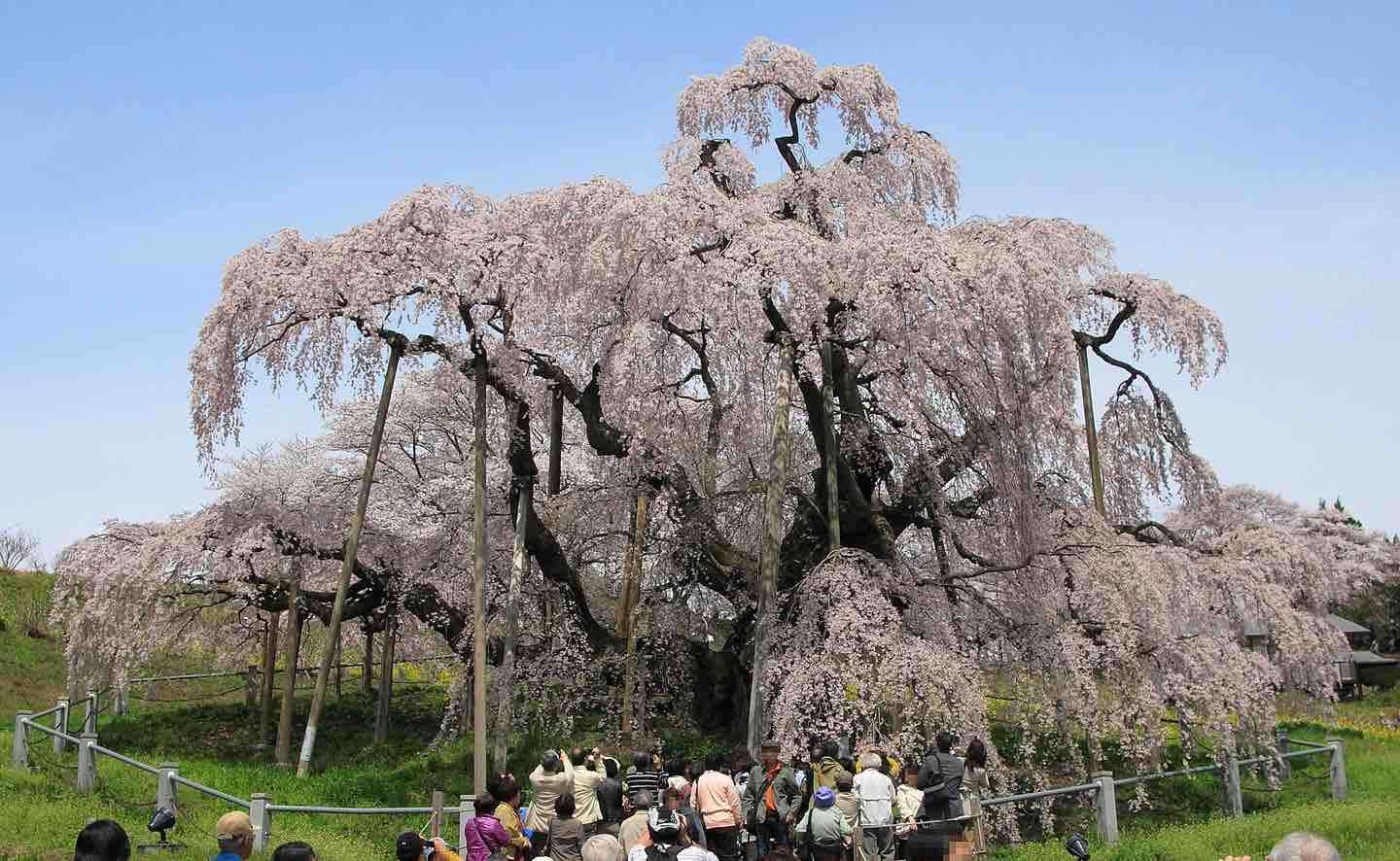Whether it's climate change or the novel coronavirus pandemic—it can be hard to stay hopeful for the future during such turbulent times.
However, this ancient cherry tree in Japan serves as an awe-inspiring example of resilience in the face of adversity.
The 1,000-year-old Takizakura—also known as the "waterfall cherry tree"—in Miharu, Fukushima usually attracts thousands of tourists and travelers from all over the world; but since the COVID-19 outbreaks forced Japan into a state of emergency, only a few visitors stopped by to see its blossoms last week.
53-year-old Sidafumi Hirata, who is in charge of preserving the cultural heritage of the town and caring for the Takizakura, told NPR's Kat Lonsdorf in a recent interview that he remembers rushing to check on the tree after Fukushima's disastrous nuclear meltdown in 2011.
The worst earthquake in the history of Japan had triggered a tsunami which damaged the Daiichi nuclear plant 30 miles away, unleashing waves of radiation upon the nearby towns—but even after the tsunami, the earthquake, and the nuclear meltdown, the Takizakura was unharmed.
"This tree has lived so long, and the longer you live, the more bad events you see," Hirata told Lonsdorf in the interview below. "So she will see more bad things, but she'll also see good—life is layers, layers of bad and good."
Hirata says that despite this year's lack of visitors, he will continue to look after the tree so it can continue blossoming for another thousand years to come—and the Takizakura's adoring fans also hope that its enduring strength will inspire others to stand just as tall in the face of chaos.
(LISTEN to the enchanting NPR segment below)
Plant Some Positivity By Sharing This Inspiring Story With Your Friends On Social Media…










Be the first to comment